Current Editorial team
Amirhossein Bagheri, California Institute of Technology, USA
- Primary field of expertise: Internal dynamics, structure, chemical, thermal, and magnetic evolution of planets
- Secondary field of expertise: Rheological, mechanical, thermodynamic, and transport properties of geomaterials
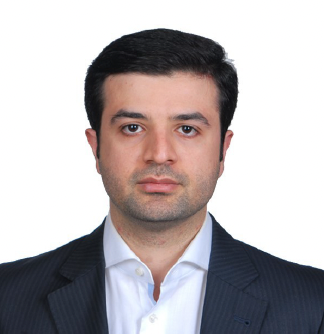
Amirhossein (Amir) Bagheri obtained his PhD followed by a postdoctoral position in planetary geophysics from ETH Zurich in 2022, in the context of the Mars InSight mission. Since 2023, he has been a postdoctoral scholar at Caltech. Amir’s research spans a range of topics in planetary science, including the interior structure and the thermal, orbital, and chemical evolution of various solar system bodies. His work combines mission geodetic data with analytical and numerical models to study planetary systems such as Mars–Phobos–Deimos, Pluto–Charon, Enceladus, Europa, Titan, and Triton.
Thibault Duretz, Goethe University Frankfurt, Germany
- Primary field of expertise: Tectonics, volcanism, magmatism, metamorphism, and planetary surface evolution
- Secondary field of expertise: Methodological and technical developments
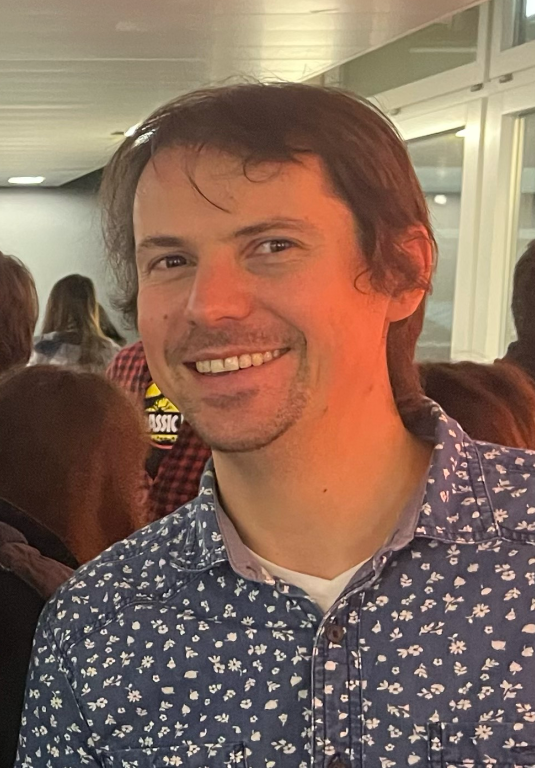
Thibault Duretz is Professor of Geodynamic Modelling at the Institute of Earth Sciences, Goethe University Frankfurt. He specializes in tectonics, with a focus on lithosphere dynamics and the numerical modeling of geological processes.
Nicolas Flament, University of Wollongong, Australia
- Primary field of expertise: Tectonics, volcanism, magmatism, metamorphism, and planetary surface evolution
- Secondary field of expertise: Internal dynamics, structure, chemical, thermal, and magnetic evolution of planets
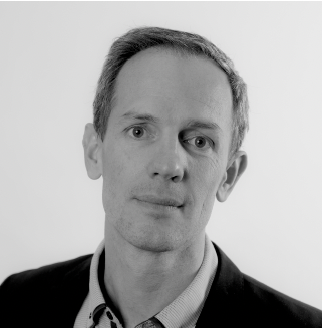
Nicolas Flament is an Associate Professor at the University of Wollongong (Australia). He obtained his PhD from École Normale Supérieure de Lyon (France) and The University of Sydney (Australia). He investigates the deformation of the solid Earth over tens of million years by merging geodynamic models with global geological and geophysical observations. He is recipient of Australian Research Council DECRA (2016) and Future (2023) Fellowships, the 2017 EGU Geodynamics Division Outstanding ECS Award, the 2021 Anton Hales Medal (AAS), and the 2021 David Syme Research Prize (Uni. Melbourne).
Lukas Fuchs, Goethe University Frankfurt, Germany
- Primary field of expertise: Internal dynamics, structure, chemical, thermal, and magnetic evolution of planets
- Secondary field of expertise: Methodological and technical developments
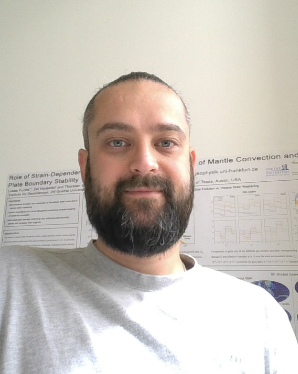
I am a postdoctoral fellow in the Geodynamics workgroup at the Institute of Geosciences, Goethe University Frankfurt. My research explores global mantle convection, emphasizing large deformation and the coupling between interior dynamics and surface processes. I focus on strain-dependent weakening and hardening, strain localization, and the self-consistent emergence of plate boundaries in global models. I also investigate rheological memory and how tectonic inheritance influences plate dynamics over geological timescales.
Fanny Garel, University of Montpellier, France
- Primary field of expertise: Internal dynamics, structure, chemical, thermal, and magnetic evolution of planets
- Secondary field of expertise: Community initiatives: education, outreach, and equality, diversity, and inclusion efforts
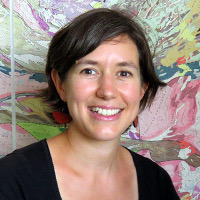
I model the interplay between dynamics, heat transfer and rheology for the mantle-plate system. My research focuses on subduction dynamics at long (viscous) time-scales, feedbacks between rheological parameterisation and mantle deformation, and computation of synthetic geophysical data from dynamical models – with application e.g. to plate boundary formation, slab pull and deformation in the transition zone, long-term evolution of the Earth’s convective mantle. Finally, I am involved in national (french) initiatives related to geosciences secondary teaching and geological heritage collections.
Richard G. Gordon, Rice University, USA
- Primary field of expertise: Tectonics, volcanism, magmatism, metamorphism, and planetary surface evolution
- Secondary field of expertise: Internal dynamics, structure, chemical, thermal, and magnetic evolution of planets
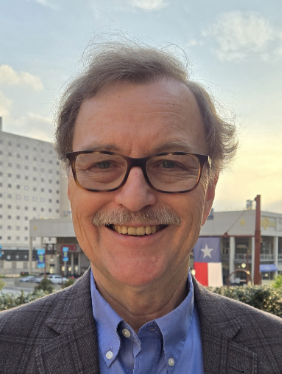
Richard is the Keck Professor of Geophysics at Rice University. His research centers on quantitative global tectonics including global plate motions, diffuse plate boundaries, paleomagnetism, lithospheric deformation, kinematics of hotspots, and true polar wander. He uses many types of data in his work including marine geophysical, paleomagnetic, seismological, and space geodetic data. He has contributed to three global plate motion projects: NUVEL (Northwestern University Velocity), MORVEL (Mid-Ocean Ridge Velocity), and GEODVEL (Geodetic Velocity).
Meng Guo, Department of Earth Sciences, The University of Hong Kong
- Primary field of expertise: Interior-surface-atmosphere interactions, biological feedbacks and planetary habitability
- Secondary field of expertise: Internal dynamics, structure, chemical, thermal, and magnetic evolution of planets
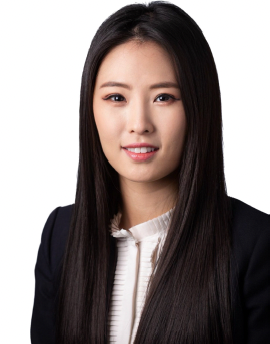
Meng specializes in modeling the evolution of terrestrial planets. She earned a Ph.D. from Yale University, where she focused on the history of continental formation and its broader implications for the evolution of Earth surface environment. She also holds an M.S. from the University of Maryland, College Park, and a B.S. from Central South University. Driven by a deep curiosity about Earth’s transformation from an inhospitable world to a habitable planet, Meng’s research seeks to unravel the intricate interactions among the solid Earth, atmosphere, and oceans over geological time.
John W. Hernlund, Institute of Science, Tokyo, Japan
- Primary field of expertise: Internal dynamics, structure, chemical, thermal, and magnetic evolution of planets
- Secondary field of expertise: Rheological, mechanical, thermodynamic, and transport properties of geomaterials
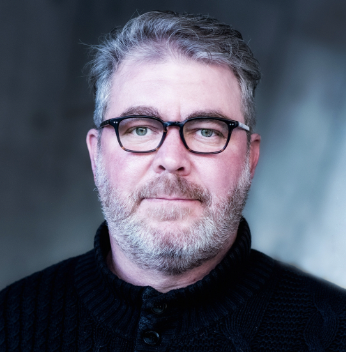
John Hernlund is a Professor, Vice Director, and Co-Founder of the Earth-Life Science Institute at the Institute of Science Tokyo (formerly Tokyo Institute of Technology). He is also deeply involved in the diamond open access movement, and is a current Editor-in-Chief/Co-Founder of the Journal of Studies of the Earth’s Deep Interior (jSEDI). He is actively involved in other movements in which scientists are taking control of their own communications, and regularly organizes independent workshops and symposia. His scientific interests encompass the dynamics and evolution of planets and life.
Stéphane Mazzotti, Laboratoire de Planétologie et Géosciences, Nantes Université, France
- Primary field of expertise: Tectonics, volcanism, magmatism, metamorphism, and planetary surface evolution
- Secondary field of expertise: Internal dynamics, structure, chemical, thermal, and magnetic evolution of planets

Professor at Nantes Université (France) since 2024. Professor at Université de Montpellier (France) 2011-2024. Scientific researcher at the Geological Survey of Canada (Victoria, BC) 2003-2011. PhD at Ecole Normal Sup., Paris in 1999.
Specialized in geodynamics of the crust and the lithosphere in active tectonics (subduction, collision) and stable continental (intraplate) regions, combining geodesy, geophysics, and numerical modeling.
Julien Monteux, Laboratoire Magmas et Volcans, CNRS, Université Clermont-Auvergne, France
- Primary field of expertise: Internal dynamics, structure, chemical, thermal, and magnetic evolution of planets
- Secondary field of expertise: Rheological, mechanical, thermodynamic, and transport properties of geomaterials
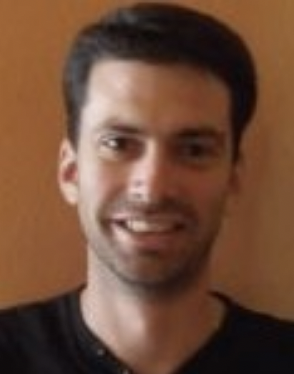
I am researcher at the Laboratoire Magmas et Volcans (Clermont-Ferrand, France). I characterize the coupling between accretion, thermal evolution and the evolution of internal dynamics within the moons and terrestrial planets of the Solar System. In particular, I aim at constraining the influence of large to giant impacts. To do this, I develop numerical models to obtain the characteristic time, length and temperature scales specific to these events, which have greatly conditioned the current thermo-chemical structure of the planets.
Séverine Rosat, Institut Terre et environnement de Strasbourg, EOST, France
- Field of expertise: Internal dynamics, structure, chemical, thermal, and magnetic evolution of planets
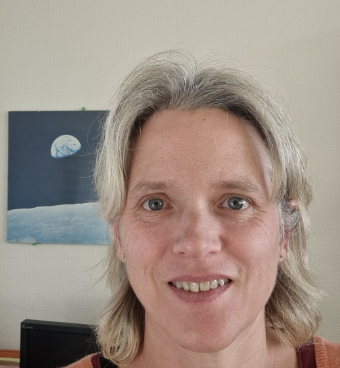
Severine Rosat is director of research (equivalent professor) of the French CNRS (National Centre for Scientific Research) at the Institute of the Earth and environment (ITES) of the EOST, University of Strasbourg. She studies surface signatures in geodetic observables of deep Earth’s interior processes to access mass redistribution within the deep Earth as well as coupling mechanisms between the Earth’s layers. Her work includes the use of signal processing methods to analyze global geodetic data (gravimetric, Earth’s rotation, surface deformation) as well as gravito-elastic modeling.
Jonas B. Ruh, Institute of Marine Sciences, CSIC, Barcelona, Spain
- Primary field of expertise: Rheological, mechanical, thermodynamic, and transport properties of geomaterials
- Secondary field of expertise: Tectonics, volcanism, magmatism, metamorphism, and planetary surface evolution
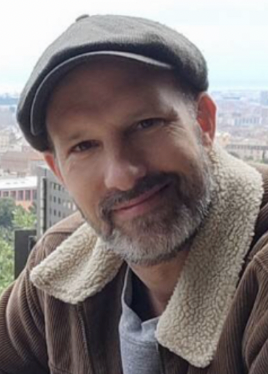
My research focuses on lithospheric deformation across all spatial and temporal scales. This
includes micro- and mesoscopic processes like dynamic grain-size evolution, fluid flow as a
response to mechanical processes, and the large-scale and long-term tectonic
evolution along plate boundaries. To address these topics, I combine a range of geological and
geophysical techniques including mechanical numerical modelling, structural fieldwork,
paleomagnetism, geo- and thermochronology, and seismic data interpretation, allowing for a
comprehensive approach to tackle timely questions.
Bernhard Steinberger, GFZ Helmholtz Centre for Geosciences, Germany
- Field of expertise: Internal dynamics, structure, chemical, thermal, and magnetic evolution of planets
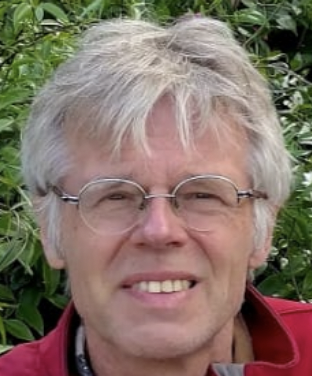
Bernhard Steinberger did his undergraduate studies in geophysics at Munich and Edinburgh universities and a Ph.D. at Harvard. He has worked in Taiwan, Germany, USA, Japan and Norway and been at GFZ since 2009. He has more than 100 publications primarily on mantle dynamic modelling, for example studying mantle plumes, dynamic topography, the relation between mantle flow and plate tectonics, geoid and true polar wander. He has supervised six Ph.D. students, but also undergraduates and practical trainees. In his free time, he likes hiking, bike riding and listen to concerts, among other things.
Gerd Steinle-Neumann, Bayerisches Geoinstitut, University of Bayreuth, Germany
- Primary field of expertise: Rheological, mechanical, thermodynamic, and transport properties of geomaterials
- Secondary field of expertise: Internal dynamics, structure, chemical, thermal, and magnetic evolution of planets
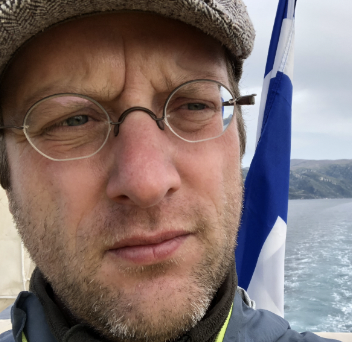
I am a mineral physicist, using mostly computational methods to investigate Earth and planetary materials, and apply results to infer properties of planetary structure or chemistry. My toolbox consists of density functional theory-based codes, machine-learning of interatomic potentials and thermodynamics. I have been a research scientist at Bayerisches Geoinstitut, University of Bayreuth, Germany, for more than 20 years, and particularly enjoy joint projects with my very competent experimental colleagues.
Pietro Sternai, University of Milano-Bicocca, Italy
- Primary field of expertise: Tectonics, volcanism, magmatism, metamorphism, and planetary surface evolution
- Secondary field of expertise: Interior-surface-atmosphere interactions, biological feedbacks and planetary habitability
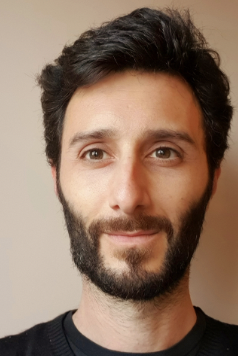
I am a geologist and I use numerical modeling and quantitative analyses to investigate climate-tectonics-life interactions
Eh Tan, Institute of Earth Sciences, Academia Sinica, Taiwan
- Primary field of expertise: Tectonics, volcanism, magmatism, metamorphism, and planetary surface evolution
- Secondary field of expertise: Methodological and technical developments
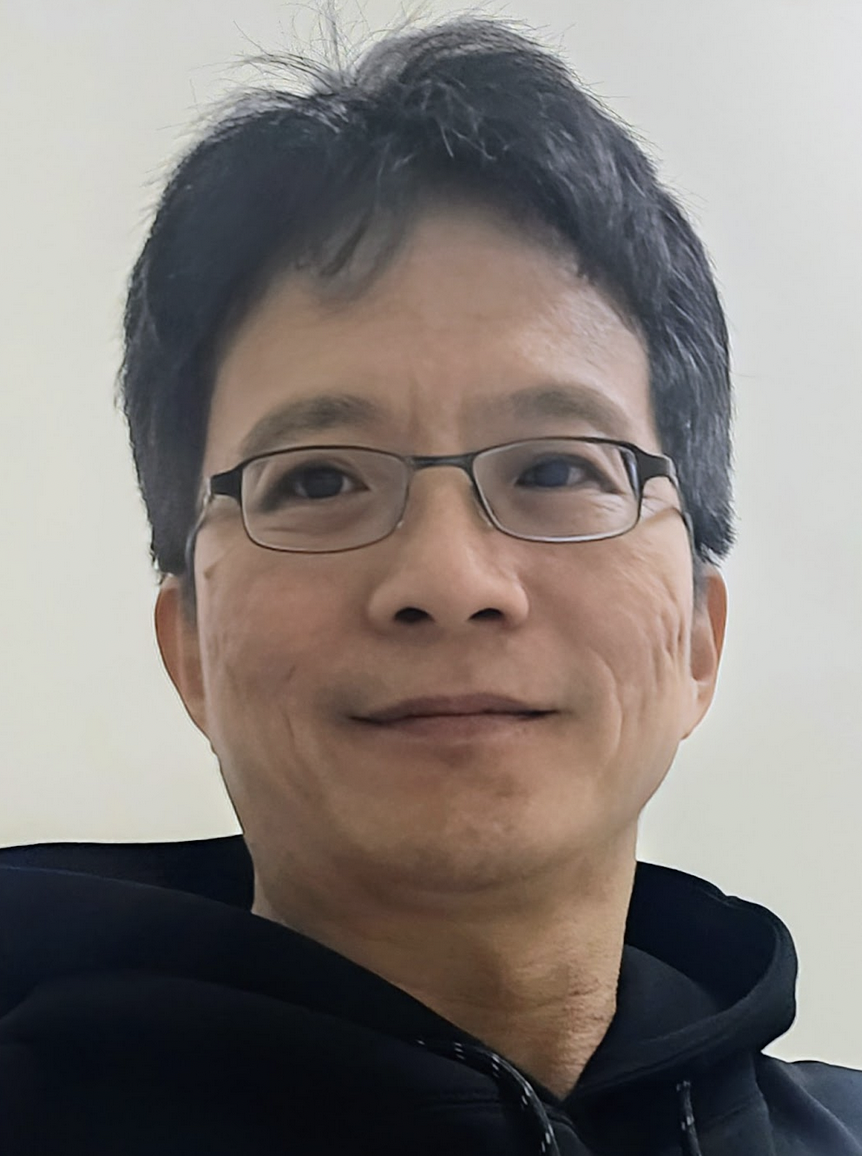
Eh Tan is a numerical geodynamicist specializing in subduction, collision, mantle plumes, and LLSVPs. He develops geodynamic software and computational algorithms for modeling Earth’s deformation and interior processes.
Kate A. Waghorn, Department of Earth Sciences, Memorial University of Newfoundland, Canada
- Primary field of expertise: Tectonics, volcanism, magmatism, metamorphism, and planetary surface evolution
- Secondary field of expertise: Rheological, mechanical, thermodynamic, and transport properties of geomaterials
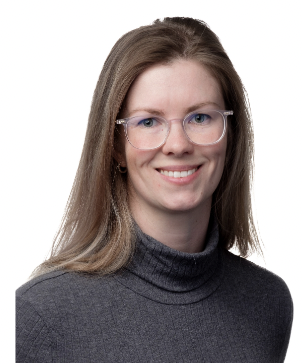
Dr. Kate Waghorn is a geophyscisist whose research interests and projects have included tectonic and thermal dynamics of mid-ocean ridges, shallow fluid flow systems, structural constraints of orogenic gold deposits and more recently structural and sedimentological characterization of CO2 sequestration targets and constraining potential leakage structures.
Matthew B. Weller, Rensselaer Polytechnic Institute, USA
- Primary field of expertise: Internal dynamics, structure, chemical, thermal, and magnetic evolution of planets
- Secondary field of expertise: Interior-surface-atmosphere interactions, biological feedbacks and planetary habitability
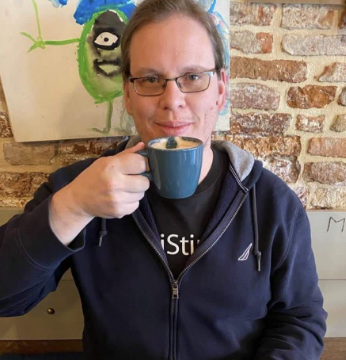
I model the interplay between dynamics, heat transfer and rheology for the mantle-plate system. My research focuses on subduction dynamics at long (viscous) time-scales, feedbacks between rheological parameterisation and mantle deformation, and computation of synthetic geophysical data from dynamical models – with application e.g. to plate boundary formation, slab pull and deformation in the transition zone, long-term evolution of the Earth’s convective mantle. Finally, I am involved in national (french) initiatives related to geosciences secondary teaching and geological heritage collections.
Iris van Zelst, University of Edinburgh, UK
- Primary field of expertise: Tectonics, volcanism, magmatism, metamorphism, and planetary surface evolution
- Secondary field of expertise: Community initiatives: education, outreach, and equality, diversity, and inclusion efforts
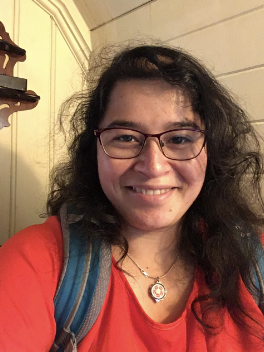
Iris van Zelst is a Patience Cowie Research Fellow at the University of Edinburgh, UK, where she studies the geodynamics and seismology of Venus. Previously, Iris studied subduction zone (seismo)tectonics, earthquakes, and tsunamigenesis, resulting in a broad expertise with numerical modelling as her main tool of trade. She is also heavily involved in various outreach and equality, diversity, and inclusion initiatives: she is the creator and host of the Science Sisters series on YouTube and created QUARTETnary – the card game about the geological time scale after a successful Kickstarter.
To learn more about how the editorial team works, have a look at Geodynamica‘s structure.
Past Editors
Geodynamica has benefited from valuable inputs from the previous pre-launch editorial committee members:
- Frédéric Deschamps, Professor in mantle geodynamics, Institute of Earth Sciences Academia Sinica, Taipei, Taiwan,
- Nathanaël Schaeffer, CNRS Research Director in core dynamics, University of Grenoble, France.

